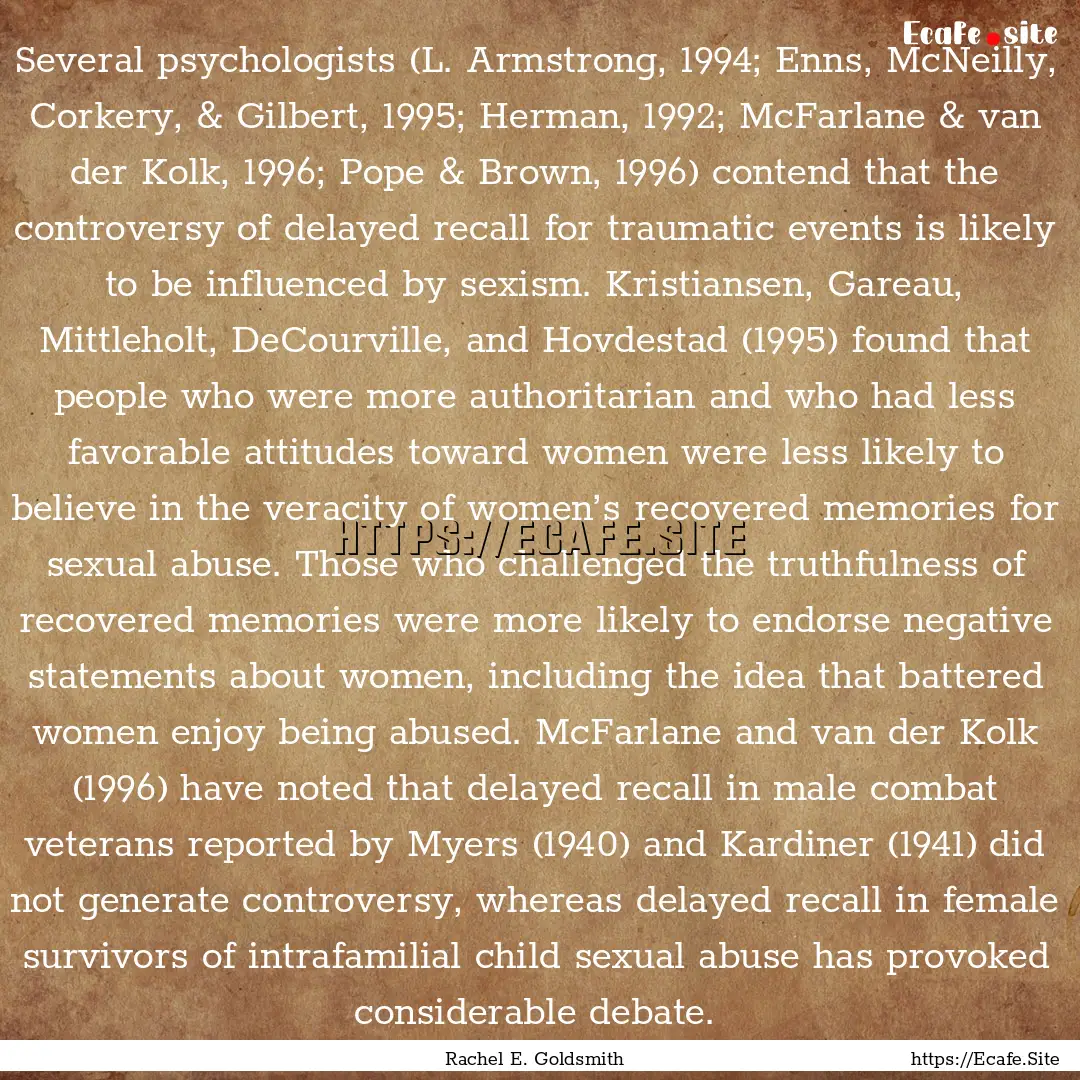
Report, if you have a problem with this page“ Several psychologists (L. Armstrong, 1994; Enns, McNeilly, Corkery, & Gilbert, 1995; Herman, 1992; McFarlane & van der Kolk, 1996; Pope & Brown, 1996) contend that the controversy of delayed recall for traumatic events is likely to be influenced by sexism. Kristiansen, Gareau, Mittleholt, DeCourville, and Hovdestad (1995) found that people who were more authoritarian and who had less favorable attitudes toward women were less likely to believe in the veracity of women’s recovered memories for sexual abuse. Those who challenged the truthfulness of recovered memories were more likely to endorse negative statements about women, including the idea that battered women enjoy being abused. McFarlane and van der Kolk (1996) have noted that delayed recall in male combat veterans reported by Myers (1940) and Kardiner (1941) did not generate controversy, whereas delayed recall in female survivors of intrafamilial child sexual abuse has provoked considerable debate. ”




